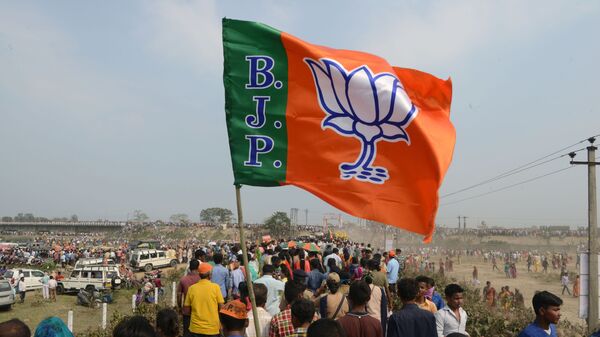After a series of media exposures, India’s opposition parties, mainly Congress, have alleged that Electoral Bonds are in fact bribes or illegal commissions paid to political parties.
In “New” India, bribes & illegal commissions are called Electoral Bonds. https://t.co/mYl5OxcVLU
— Rahul Gandhi (@RahulGandhi) November 18, 2019
The governing Bharatiya Janata Party (BJP), however, rebuffed the charges and claimed that it would “remove corruption from the system as now donors will be able to donate only through cashless channels”.
“The Electoral Bonds are a prime instance of electoral reform, aimed to remove corruption from the system as now donors will be able to donate only through cashless channels”, said federal Trade and Railways Minister Piyush Goyal. “Earlier, the elections were fought through an opaque and unaccountable system where black money ruled”.
The Electoral Bonds are a prime instance of electoral reform, aimed to remove corruption from the system, as now donors will be able to donate only through cashless channels.
— Piyush Goyal (@PiyushGoyal) November 21, 2019
Earlier, the elections were fought through an opaque and unaccountable system where black money ruled.
A total of Rs. 222 crore (approximately $30.9 million) was collected through Electoral Bonds in the first tranche, of which 95 percent has gone to the governing Bharatiya Janata Party (BJP), according to data compiled by the Association of Democratic Reforms, a group of activists working for electoral and political reforms.
Reports based on the Right to Information donors purchased electoral bonds worth Rs. 5,800 crores (approximately $807.9 million) until May 2019, which coincides with the elections to India's lower house of parliament, the Lok Sabha.
Political economist Pranjoy Guha Thakurta, however, felt that the bond legalises corruption in the funding of political parties and candidates for elections.
“The way electoral bonds were conceived and structured, it could never have brought greater transparency in political funding. Actually, the reverse is happening”, he told Sputnik.
Economist Subhumoy Bhattacharjee concurred and said that the question was whether it satisfies the issue of the ethical funding of political parties.
“Indian funding to political parties has been opaque earlier too; the point is Electoral Bonds possibly does not improve the environment”, he told Sputnik.
Only political parties registered with the Election Commission of India and that secured no less than one percent of votes in the previous Lok Sabha elections are eligible to receive these bonds. The premier state-run State Bank of India issues these bonds during the months of January, April, July, and October in the denomination of Rs. 1,000 ($13.93) to Rs. 1 crore (over $0.1 million).


